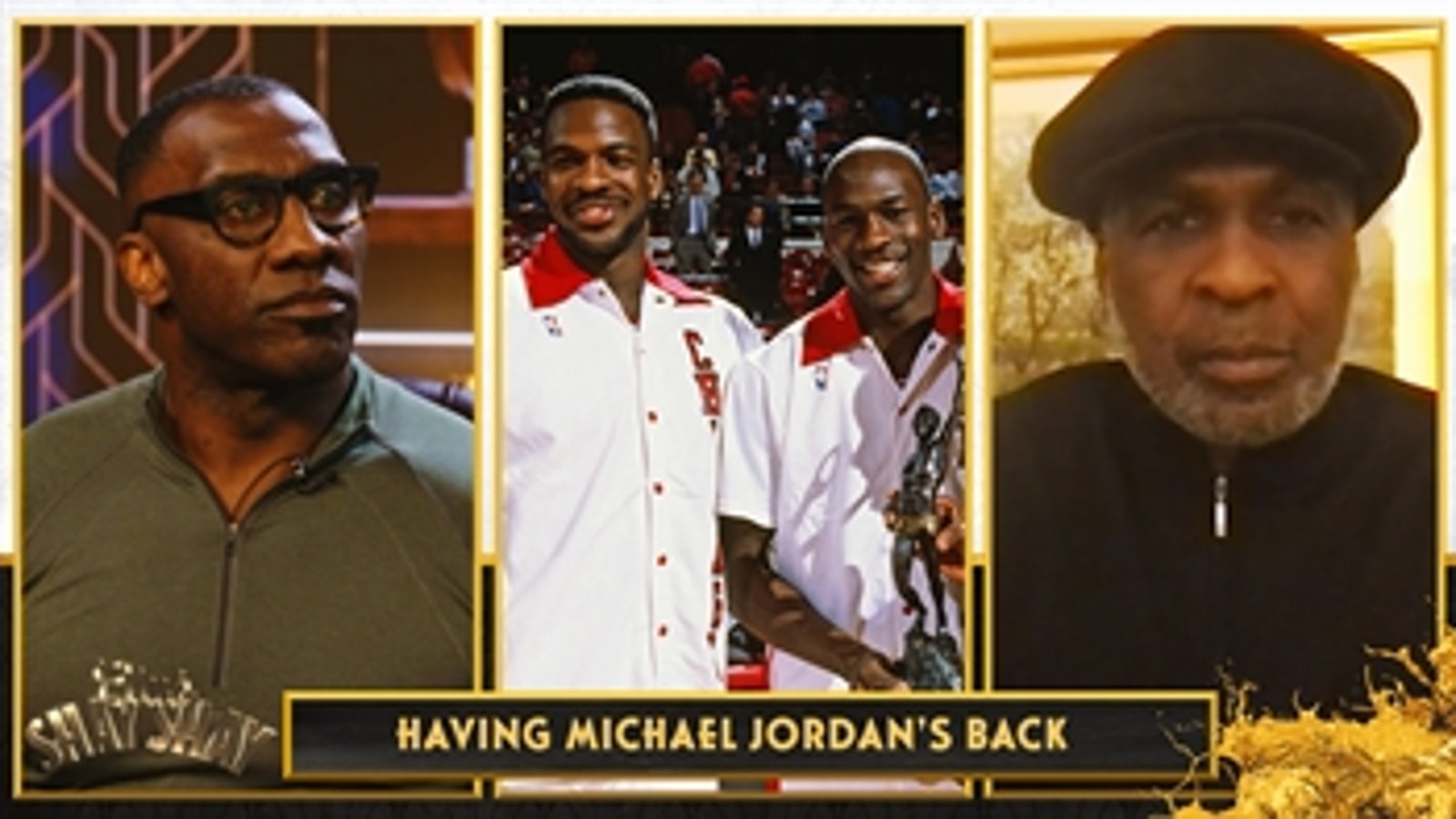
Michael Jordan's 'enforcer' shares tales of Chicago Bulls' rise
When you play 19 seasons in the NBA, you're going to have a wealth of great stories. That's the case for Charles Oakley, and he's sharing them with the world.
Oakley, a tough power forward known primarily for the 10 seasons he spent with the New York Knicks, has come out with a book called, "The Last Enforcer," and he spoke about it with Shannon Sharpe on his podcast, "Club Shay Shay."
Oakley was a bruising player and a double-double machine who averaged 9.7 points, 9.5 rebounds and 3.4 fouls per game across his long career.
In his lone All-Star season of 1993-94 with the Knicks, he averaged 11.8 PPG, 11.8 RPG and 2.7 APG while playing all 82 regular-season games. The Knicks advanced to the NBA Finals that season, losing to the Houston Rockets in seven games.
What many might not remember, though, is that Oakley started his pro career with the Bulls in 1985, arriving in Chicago one year after Michael Jordan did. That enabled him to build an early bond with Jordan.
Michael Jordan could always count on Charles Oakley
"When I got there I was a rookie, and I was showing the veterans that I'm a guy who's gonna do my job, be on time, you can hold me accountable," Oakley said. "I just want to play my role. That's the whole theme in this book is trying to play a role on the court and off the court."
Oakley said there was tension on those Bulls teams between the veterans and Jordan, the young upstart. Oakley said he earned Jordan's respect by "playing with purpose" even in practice, and by displaying consistent toughness.
"He knew that he had somebody that if something happened, he had somebody who had his back," Oakley said. "He saw my consistency, that I'm here to stay. I'm not taking no trash. I think that it did rub off on him. He wasn't outgoing like he was later on in his career. But I could see how he can pick up some of my tendencies, how he was playing and how he was around the guys."
Oakley also witnessed the budding talent of Scottie Pippen, whom the Bulls acquired from Seattle in a draft-day trade in 1987. That gave him insight on the recent fallout between Jordan and Pippen.
How did the former teammates go from winning six championships together to becoming adversaries?
"You know in sports, there's a lot of guys who play together for a lot of years, they don't play for the friendship, they play for winning championships and the love of the game," Oakley said. "We've seen this play out in a lot of ways — Magic and Kareem maybe, Shaq and Kobe, Scottie and Michael, and a few other guys who didn't get along, but they won championships together."
Oakley asserted that some of the issues rose as a result of Jordan's documentary, "The Last Dance," in which Oakley says Pippen took a back seat to players like Dennis Rodman and Steve Kerr.
"I think Mike couldn't have won without Scottie. He has said that many a time," Oakley said. " … Scottie felt hurt by 'The Last Dance.' I think Scottie maybe shoulda got more play in a positive way."
But Oakley also said that Pippen's assertion that he was a better player than Jordan doesn't add up: "I think Scottie can't win the argument that he's better than Michael. ... I don't think they'll ever be friends again."

Charles Oakley and Michael Jordan watch the game of the Charlotte Bobcats against the Chicago Bulls on April 14, 2010 in Charlotte, North Carolina.
After three seasons in Chicago, Oakley was traded to the Knicks. And while the Bulls went on to win six championships without him, New York only reached the Finals once, in 1994, when Jordan took a break from basketball to attempt a pro baseball career.
Oakley said his Knicks were good, but the ball never quite bounced their way when they needed it. He also asserted that his teammate on the Knicks, star center Patrick Ewing, lacked a Jordan-esque dominance to get the job done.
"Michael was the ‘it’ factor, Patrick was just a player," he said. "Patrick was skilled, could do a lot of things, but I think that once he got to the NBA, he didn't do the things he did at Georgetown … He was good. But he wasn't an Hakeem [Olajuwon]. Hakeem could carry a team and put a team on his back because he was so agile. He was better. I think his IQ was better than Patrick's."
You can watch the "Club Shay Shay" on YouTube or subscribe on podcast platforms, including Apple Podcasts.





